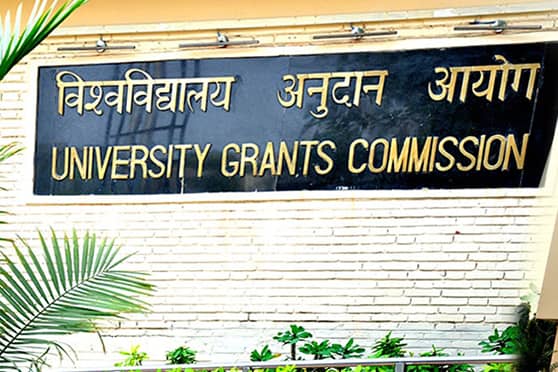The University Grants Commission (UGC) on Wednesday unveiled draft guidelines for the appointment of experts from industry as “professors of practice” in universities and colleges.
The higher education regulator has sought feedback and comments from all stakeholders by September 6 on the draft “guidelines for engaging professors of practice in universities and colleges”.
According to the guidelines, those with “proven expertise” in their professional fields and working at senior levels can be appointed by individual institutions as professors of practice, a full-time assignment. These professionals can be from fields such as engineering, science, technology, entrepreneurship, commerce, social sciences, media, literature, fine arts, civil services, armed forces, law and public administration.
“Those who have proven expertise in their specific profession or role with at least 15 years of service/experience, preferably at a senior level, will be eligible for Professor of Practice,” the draft guidelines say.
The professors of practice will be engaged for up to one year, which can be extended to a maximum of four years.Academic qualifications usually required to apply for teaching assignments in institutions of higher education will not be considered essential in the case of professors of practice, nor will they be required to have published research papers.
A panel of experts set up by an institution to hire professors of practice will assess their skills that will be required to impart industry-specific training to students, in addition to taking regular classes. The number of professors of practice in an institution should not exceed 10 per cent of the sanctioned posts, the guidelines say.
However, these posts will be exclusive of the regular sanctioned positions.According to the UGC guidelines, the recruitment of professors of practice will help “take real-world practices and experiences into the classrooms and also augment the faculty resources in higher education institutions”.
The responsibilities of the professors of practice will include involvement in developing and designing course curriculum, delivering lectures, mentoring students in innovation and entrepreneurship, focusing on industry-academia collaboration, carrying out joint research projects and holding seminars in collaboration with regular faculty members.
Their salaries can either be funded by industry or by the institutions hiring them from their own resources, the guidelines say. Some professor of practice can also be recruited on an honorary basis where the institution will pay honorarium. The salary amounts will be fixed by the respective institutions.
The universities will invite applications or nominations for these posts while a selection committee comprising two senior faculty members and one external member from industry will pick eligible candidates.Bikramaditya Kumar Choudhary, a faculty member at the Centre for the Study of Regional Development, Jawaharlal Nehru University, welcomed the concept but expressed apprehensions about its implementation.
“In the appointment of professors of practice, mostly individuals loyal to decision-makers could make the cut. These professors of practice will have zero accountability to anything, let alone students, the institution and academic activities,” Choudhary said.A teacher at Delhi University questioned the lack of financial commitment from the UGC for the project.“Where will the institutions generate money from? Ultimately, the burden will be passed on to students. This will make public education costlier and create more hardships for poor and deprived students. When the UGC is proposing such a model, it should fund it,” he said.











